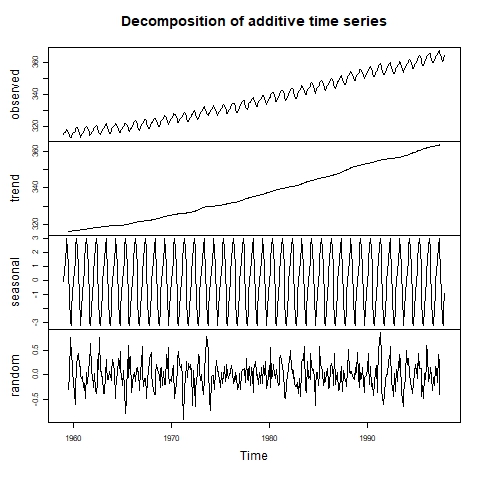Analyse Your Temporal Data
Analyse your time series data and decompose it into seasonal characteristics and long-term trends.
Learning objectives
At the end of this session you should be able to
- explain some different strategies for time-series decomposition,
- discuss why some care should be taken in pre-processing time series prior to trend analysis,
- use e.g. linear models for explaining trends.
Time series decomposition
Dynamics of environmental variables are often composed of very short term, intermediate (seasonal) and long-term (trend) variations. When analysing time series data, the decomposition into the respective components offers insights into driver-response relationships as basis for further analysis.

The above graphic shows the decomposition of the CO2 dataset from R’s forecast library.